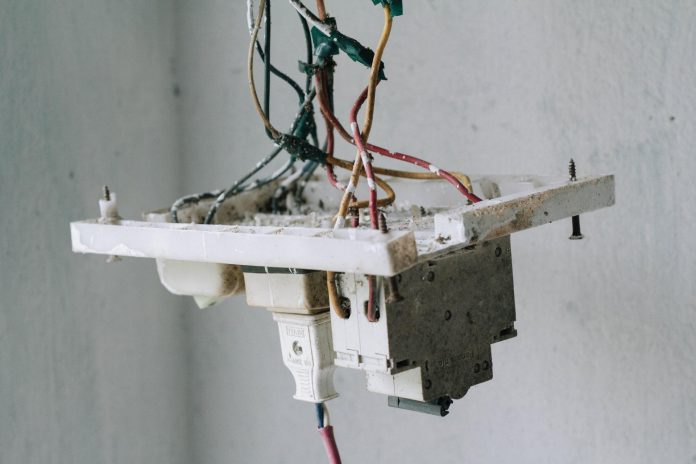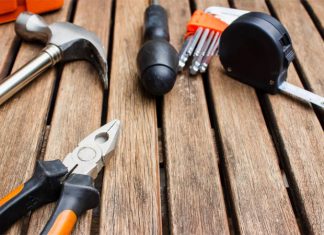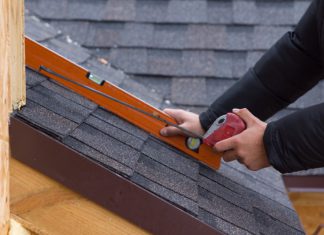The need for electrical work can come in many forms. Whether you have a short in your wires or plan to hang a new chandelier, you’ll have to dig into your home’s electrical system. But is electrical work a job you can tackle yourself, or should this one be left up to the pros?
Benefits of DIY Work
When it comes to home repairs and renovations, DIY is an attractive route to take. Many people choose to take on projects themselves because it is cost effective and they have control over all aspects of the project. This is especially true of electrical work. Electricians are highly skilled workers who charge a lot of money for their expertise. But if you’re able to do the work yourself, you can save a lot of money. DIY also allows you quality control over the results. Work areas are left properly cleaned and you can organize the work the way you see fit. By learning something new, you become a more competent homeowner, adding more skills to your arsenal.
The Downside to DIY
Even though DIY has many attractive qualities, it doesn’t come without risk. Most DIY projects are taken on by people who are not trained in the particular task they are attempting to carry out. Friends and family with experience can help make the project go smoothly, but a lack of experience can risk disastrous results. When a someone unskilled attempts electrical projects, there are many risks involved, such as:
- Electric Shock
- Creating a Fire Hazard
- Proper GFCI Implementation
- Expensive Repairs
- Fail Home Inspection
If you don’t have the knowhow to properly diagnose a problem, you may feel like you are chasing a ghost. So often DIY turns into a lot of troubleshooting if you aren’t sure what you are looking for, and time and money are wasted on a guessing game. The electricians at Kronos Electrical Contractors Ltd. is a full-service electrical company offering 24/7 emergency service. They perform installations, rewires, and code violation corrections.
Electric Shock
When working with electricity, you have to understand that you are working with dangerous equipment. Since DIYers are working with a very complicated system, the risk of electric shock is extremely high. A single shock can result in severe burns or even death. Electricians spend years training to keep themselves safe and get the job done.
Creating a Fire Hazard
Simple installation mistakes can create the potential for a fire hazard. To make things even more complicated, an electrical fire can’t be put out with water because water is a conductor of electricity. Installing incorrect gauges, confusing ground and neutral wires, or using the wrong size fuse are common mistakes that lead to a risk of fire. Knowledgeable electricians can help you prevent the risk of losing everything and everyone you love to a house fire.
Proper GFCI Implementation
Every home has a specific number of switches or outlets with ground-fault circuit interrupters, or GFCI, components built into them. GFCI’s are designed to keep homeowners safe with a built-in sensor that prevents users from getting shocked in the event of a faulty electrical connection. GFCI connectors are commonly found in outdoor outlets and areas of the home with high moisture, such as the kitchen and bathrooms. As a DIYer, if you are unfamiliar with the concept of GFCI and overlook this critical component, you could create incredibly unsafe conditions for your family. Using the proper expertise, a professional will assess your home and make sure it is well protected from potential dangers.
Expensive Repairs
As well meaning as the DIYer is, their lack of experience creates a huge margin for error. You may get to the end of your project and feel proud, only to find a new problem you created. Even though you managed to complete the project alive, with no electric shock and no fire, faulty wiring can cause electricity to short out. Without knowing the project was completed right the first time, you risk the need for additional costly repairs as a result.
Fail a Home Inspection
As a skilled DIYer, you’ve successfully completed your electrical work. No one was electrocuted. Nothing caught on fire. You peacefully moved on. Now, it’s time to sell your home, and the potential buyers have hired an inspector. The inspection fails due to the electrical work. This could happen for several reasons, whether something wasn’t labeled properly, or there was a poor connection. But now, the sale of your home has been tied up by an inspection. Professional electricians understand industry standards. They will follow them from the beginning, or they can be held accountable if you keep your paperwork.
Whether your electrical system is in need of repair or you are doing an installation, it is important to know the best route to take to get the job done right. Even though DIY is an attractive route, it’s not always the best choice for electrical projects.












